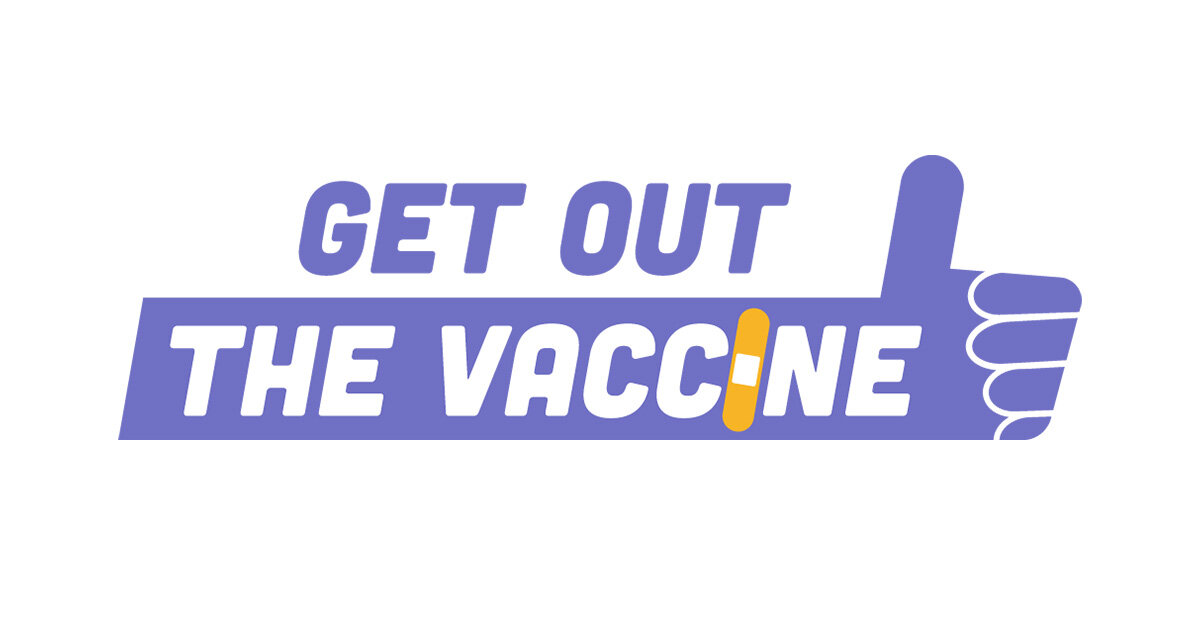How to navigate IOS 14 FB & Apple catfight drama
Facebook and Google’s cat fight about Apple’s iOS 14 privacy changes makes me happy.Not because I love catfights (*GRABS POPCORN*), but because hacks I used 10 years ago (before Facebook even had a pixel to manage and optimise campaign performances) are useful again.But before I share a few tips on how to navigate those new changes, who does not love some background info?What is Facebook and Apple’s cat fight about? Today while checking a Facebook ads account, I saw the following pop up: How Apple's iOS 14 Release May Affect Your Ads Facebook was using strong language, talking about a threat to business and the free internet. So I decided to google the story, and it turns out there is a lot of drama where both Apple and Facebook are in the middle of a PR fight. It is as if two drag queens are fighting to get a hold of the last red lipstick on earth.For two days, Facebook ran multiple full-page ads in newspapers like The Wall Street Journal, New York Times, and the Washington Post denouncing Apple’s move.And Apple’s CEO Tim Cook used Twitter to fire back at Facebook’s claims. Apple’s CEO using Twitter to hit back at Facebook How Steve Jobs being antagonistic toward ads made Facebook a fortuneHired as Facebook’s first product manager for ad targeting, Antonio Garcia Martinez’s job was to convert FB’s user data into money by whatever legal means available. In his book titled “Chaos Monkeys: Obscene Fortune and Random Failure in Silicon Valley” he mentions that Steve Jobs being antagonistic to advertising was what made Facebook a fortune.Apple, being very protective of users’ data, made it hard for ad exchange to target users based on apps and the mobile phone data.And that’s where ads, powered by Facebook’s data, gave it a strong advantage on mobile.You are a restaurant wanting to target people who live in Manhattan? Facebook had that data.You are a college wanting to target only people ages between 17 and 18 years old? Facebook can help you as well.With as much as 94% of Facebook’s advertising revenue coming from mobile, it’s no wonder that Mark Zuckerberg is as angry as a cat whose breakfast is 10min late. (My new program called the cat servant academy will train you to serve breakfast on time) Cat complaining that I am not fast enough at feeding him It is not about the user, the free internet, or even small businesses... but rather about Facebook’s revenue.Would it make it harder to track conversion? According to Facebook, one of the ways this can create a negative impact is by limiting the advertisers’ ability to measure and report on conversions.What would be the real impact? It is hard to say, I can not predict the future.Could it be that Facebook is acting like a cat that cries: My breakfast was 5 seconds late, I nearly died? Maybe.Even without the recent IOS 14 changes, one never tracked 100% of conversions1) Imagine a driver bored at a traffic light who decided to check Facebook.The traffic light might turn green in the next 10 seconds, he is not going to be like: Quick quick where is my credit card, I need to buy this product in the next 10 seconds.He might give you his email, then buy later on Desktop where he does not use Facebook.Why does it matter? If the conversion happens on a device or browser where the user is not logged in to Facebook, then Facebook will not be able to attribute the conversion to the ads.With Facebook having over 1 billion mobile-only users, that is a lot of people.2) A client was selling healthy vegan snacks via Facebook

Facebook and Google’s cat fight about Apple’s iOS 14 privacy changes makes me happy.
Not because I love catfights (*GRABS POPCORN*), but because hacks I used 10 years ago (before Facebook even had a pixel to manage and optimise campaign performances) are useful again.
But before I share a few tips on how to navigate those new changes, who does not love some background info?
What is Facebook and Apple’s cat fight about?
Today while checking a Facebook ads account, I saw the following pop up:
How Apple's iOS 14 Release May Affect Your Ads

Facebook was using strong language, talking about a threat to business and the free internet.
So I decided to google the story, and it turns out there is a lot of drama where both Apple and Facebook are in the middle of a PR fight. It is as if two drag queens are fighting to get a hold of the last red lipstick on earth.
For two days, Facebook ran multiple full-page ads in newspapers like The Wall Street Journal, New York Times, and the Washington Post denouncing Apple’s move.
And Apple’s CEO Tim Cook used Twitter to fire back at Facebook’s claims.
Apple’s CEO using Twitter to hit back at Facebook

How Steve Jobs being antagonistic toward ads made Facebook a fortune
Hired as Facebook’s first product manager for ad targeting, Antonio Garcia Martinez’s job was to convert FB’s user data into money by whatever legal means available.
In his book titled “Chaos Monkeys: Obscene Fortune and Random Failure in Silicon Valley” he mentions that Steve Jobs being antagonistic to advertising was what made Facebook a fortune.
Apple, being very protective of users’ data, made it hard for ad exchange to target users based on apps and the mobile phone data.
And that’s where ads, powered by Facebook’s data, gave it a strong advantage on mobile.
You are a restaurant wanting to target people who live in Manhattan? Facebook had that data.
You are a college wanting to target only people ages between 17 and 18 years old? Facebook can help you as well.
With as much as 94% of Facebook’s advertising revenue coming from mobile, it’s no wonder that Mark Zuckerberg is as angry as a cat whose breakfast is 10min late. (My new program called the cat servant academy will train you to serve breakfast on time)
Cat complaining that I am not fast enough at feeding him

It is not about the user, the free internet, or even small businesses... but rather about Facebook’s revenue.
Would it make it harder to track conversion?
According to Facebook, one of the ways this can create a negative impact is by limiting the advertisers’ ability to measure and report on conversions.
What would be the real impact? It is hard to say, I can not predict the future.
Could it be that Facebook is acting like a cat that cries: My breakfast was 5 seconds late, I nearly died? Maybe.
Even without the recent IOS 14 changes, one never tracked 100% of conversions
1) Imagine a driver bored at a traffic light who decided to check Facebook.
The traffic light might turn green in the next 10 seconds, he is not going to be like: Quick quick where is my credit card, I need to buy this product in the next 10 seconds.
He might give you his email, then buy later on Desktop where he does not use Facebook.
Why does it matter?
If the conversion happens on a device or browser where the user is not logged in to Facebook, then Facebook will not be able to attribute the conversion to the ads.
With Facebook having over 1 billion mobile-only users, that is a lot of people.
2) A client was selling healthy vegan snacks via Facebook ads.
Looking at the numbers and seeing no sales, I sent him an email saying: We are getting no sales, can we please schedule a call to strategize.
The client replied that he actually saw a huge increase in sales on Amazon.
It turns out people clicked on the FB ads, decided to Google the brand name, and Amazon was on the top of the search results.They decided to buy from Amazon instead of the client’s website.
Does it matter that some conversions are not tracked?
(Optimising a Facebook campaign is like cooking Malaysian food)
While in Malaysia Chef Gordon Ramsey was trying to learn how to cook beef Rendang.
Here is how the conversation went:
Gordon: where is the recipe?
Local chef: if you ask me how much onion, I will say “I don’t know Aga Aga which means up to you”
Gordon: For how long do I fry this for?
Local chef: Aga Aga.
Later, Gordon said that this opened his eyes: Malaysian cooking is not about a precise recipe saying “two tablespoon of star anise.ou just watch and learn, smell, look, and taste, and then adjust.
It is the same with Facebook ads. The numbers might not be 100% exact like in the case of cooking, but rather, you take a taste and decide you need to add more salt, or more lime juice.
Photo credit: Gordon's Great Escape

An ad set might report 47 opt-ins, at $3.9/opt-in
Another ad set 30 opt-ins, at $8/opt-in
While those numbers might not be 100% accurate, they provide you with an order of magnitude that allows the advertiser to adjust and optimise.
How I tracked conversion with precision before the pixel
I started running Facebook ads in 2010. Yet Facebook released the Conversion Pixel for tracking website conversions only in 2013.
One of the campaigns I ran before 2013 was for a business author whose request was: I need 100 opt-in per day at less than $1/opt-in.
Without knowing which audience and which ad creative drove conversions at which cost, it would have been very hard to optimise my campaign.
1) For each ad and audience I passed both the audience and ad name as a url parameter.

So if my url was www.sarah-sal.com now the url I used for would be along the line of www.sarah-sal.com/?audience_name=Forbes&ad_name=Ad2
2) I modified the landing page form to include a hidden field which included the audience and ad name, which could not be seen or modified by users when the form was submitted.
3) 2-3 times per day I exported into a spreadsheet the emails that opted-in for that day, including the audience and ad name.
4) I exported the FB ad spend into a spreadsheet and by combining the data with the spreadsheet from step 3, I was able to know exactly the cost per opt-in of each ad I was running.
Would you ever need to use the same macgyver hack I used?
Probably not, but there is value in knowing how I did it back in the day.
Let me explain.
Amazon does not allow sellers to install a pixel on their website. They don’t want 3rd parties to collect data from their user, or to build a retargeting audience as that is the bread and butter of their business that they are protecting.
Yet Amazon recently launched a tool called Amazon Attribution, that allows advertisers to see which channel and which specific ad got them results.
You will not run ads in complete darkness with absolutely no data, but the amount of data might be less.
According to Facebook it was possible to see conversions that happened up to 28 days after someone clicked that ad; that is reduced to 7 days now.
Later in this blog post I’ll mention how you can even get more data than Facebook ad managers provide independent of IOS 14 changes.
But first let us talk about how email is a key component.
It is important to combine emails and Facebook ads
Collecting emails is another way to get more data on your campaign performances.
For a client of mine I often export monthly sales, then run a MySQL query to find how many sales came from Facebook ads. (how to use MySQL for that purpose can be a separate blog post on its own) With Facebook reporting conversions up to 28 days after someone clicked your ad, I am able to see sales that happened beyond those 28 days.
But I also get other useful data, like the fact that, on average, many sales happen 4.5 months or more after someone opts in. Or even which products got the most sales.
Data is not the only reason you should have a strong email marketing strategy.
Most of Facebook traffic comes from mobile.
Imagine someone who is checking their phone before crossing the street, next they see a pink elephant flying and they try to take a selfie. Mobile can be an environment full of interruptions.
Facebook can be the first touch point, and email acts as the bridge between a user who opted-in on mobile, but opens, checks, and even buys your products/service while they are on a desktop computer.
Never mix emails from different traffic sources
During Season 11 of Will & Grace, Grace is pregnant.
But she doesn't know who the father is as she had too much fun while in Italy.
Photo credit: Will & Grace Season 11

It is the same with an email list. Let us say you have an ebook that helps people cook gourmet food for their cat.
Let us say your email list has 1000 subscribers.
400 of them came from Google search and 600 from Facebook ads.
You send an email selling a $2000 oven specifically designed to cook juicy mice for your cat. 3 people buy the oven. Did the 3 sales come from Facebook, from Google, from both? Now you are like Grace wondering: Who is the father of my baby. (tagging your email by traffic source will also work)
Someone you interrupted on Facebook will have different behaviour than someone who opted-in to your list as a result of a Google search. People behave differently based on which marketing channel they came from.
Having a separate email list for opt-ins coming from Facebook ads will let you know how successful or not Facebook is as a channel.
Otherwise the data gets mixed up.
Your Turn
Feel free to leave any questions you have in the comment section below. Or feel free to tell me about your cats.
What's Your Reaction?






























